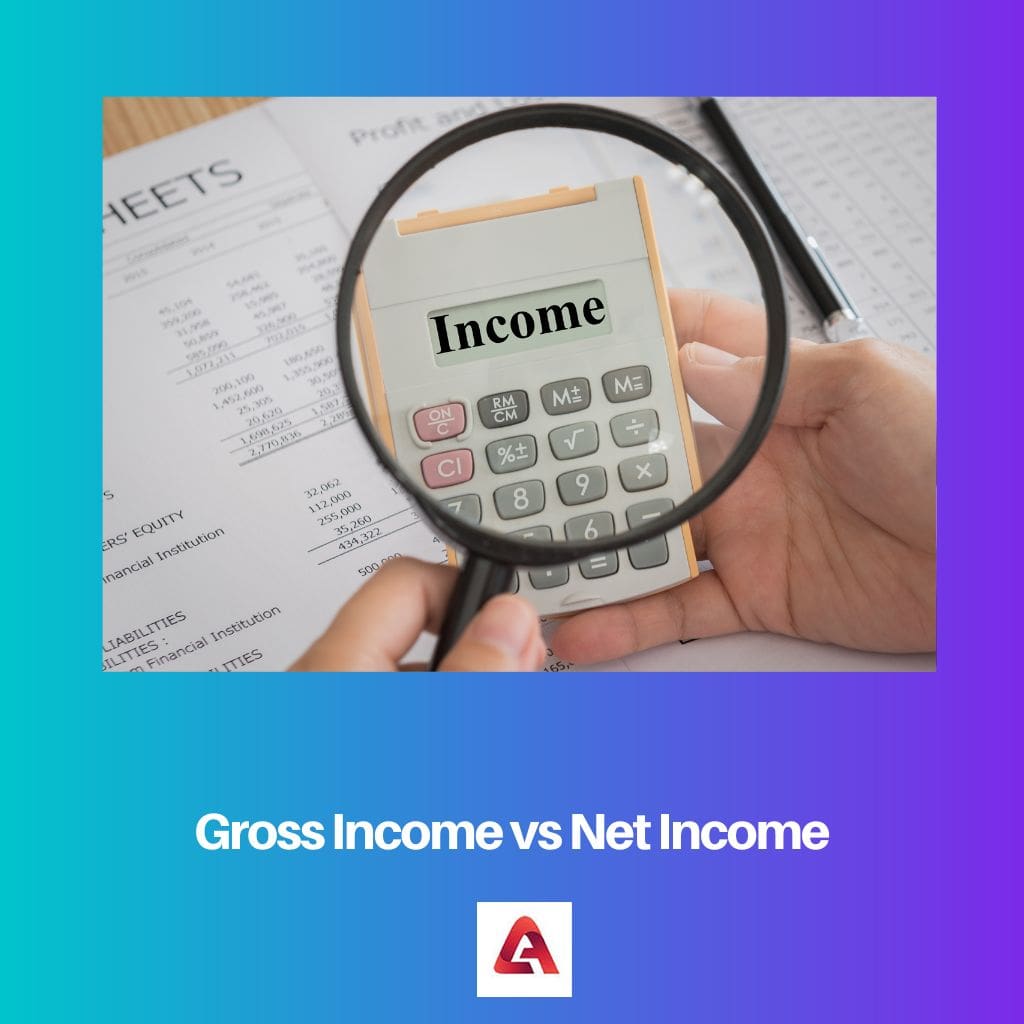When referring to a company’s earnings, terms such as gross profit, operational profit, and net income are used. The difference is that each one reflects income at a different level of the manufacturing and revenue cycle.
Key Takeaways
- Gross income is the total income an individual or business earns before taxes and other deductions are taken out. At the same time, net income is the income left after taxes and other deductions.
- Gross income calculates an individual’s tax liability, while net income is a better indicator of an individual’s actual income.
- Gross income includes all sources of income, while net income includes only the income earned after deductions.
Gross Income vs Net Income
Gross income is the total amount of income earned by an individual or company before any deductions or taxes are taken out. This includes all sources of income such as wages, salaries, interest etc. Net income is the amount of income left over after all deductions and taxes have been taken out. This includes expenses such as taxes, retirement plan contributions and other deductions from gross income.

While discussing a person’s gross income, one means the total amount of money that he receives from all sources combined.
To calculate a person’s net income, subtract everything from their gross income except for expenses (sales & distribution, workplace, and administration), interests and taxation, as well as any damages and other disbursements, and you’ll have their net income (like dividend).
Comparison Table
| Parameters of Comparison | Gross Income | Net Income |
|---|---|---|
| Significance | Gross income is mostly the level of income before any deductions are made. In short, it is the income before any adjustments are made. | Net income is the remaining amount after taxation, as well as other expenses that have been deducted. |
| Which one is higher | Since there are no deductions made, Gross Income is always higher than the latter one. | Whereas, due to the deductions made by taxation and other expenses, net income is lower. |
| Dependency | As a matter of fact, Gross income isn’t dependent on its peer since it’s the raw part of income. | Because net income is originally conceptualized on gross income, it’s the most relevant distinction between the 2 figures. |
| Expense Deduction | When it comes down to the operational expenses of a corporation, it relies on Gross income. | Whereas net income comes into play in terms of all the non-operational expenditures in a business. |
| Recorded at | When an income statement is considered, Gross income is always mentioned at the top part. | On the other hand, net income gets listed at the bottom (due to all the deductions made). |
What is Gross Income?
Gross income can refer to both an employee’s paycheck as well as a company’s revenue, depending on the context. While discussing a person’s gross income, one means the total amount of money that he receives from all sources combined.
Gross income is the sum of all the corporation’s receipts, less the different costs incurred in creating and delivering commodities to their present location and status.
Cost of goods sold (COGS) is a measure of a company’s earnings after removing its production and sales costs (COGS). According to Gross Profit, companies are more efficient at controlling manufacturing costs, such as labour and supplies, to generate revenue through the sale of their goods and services.
When calculating a corporation’s gross profit, deduct the company’s total income from the cost of products sold for the accounting cycle.

What is Net Income?
A person’s or a business’s net income could both be described as net income.
To calculate a person’s net income, subtract everything from their gross income except for expenses (sales & distribution, workplace, and administration), interests and taxation, as well as any damages and other disbursements, and you’ll have their net income (like dividend).
As a result of all modifications, it represents the amount that is left (i.e., Provisions). Rental revenue and profit from the sale of assets are included in it.
In large enterprises, this can get exceedingly complex. As a result, the bookkeeper and accountant should determine and divide revenues and expenses in a manner that is appropriate to their work scope and context.
It is customary to estimate net income per year within each fiscal year. Income tax, finance expense (interest expense), and related interest are typical deductions.

Main Differences Between Gross Income and Net Income
- When it comes down to the operational expenses of a corporation, it relies on Gross income. In contrast, net income comes into play in terms of all the non-operational expenditures in a business.
- When an income statement is considered, Gross income is always mentioned at the top part. On the other hand, net income gets listed at the bottom (due to all the deductions made).





